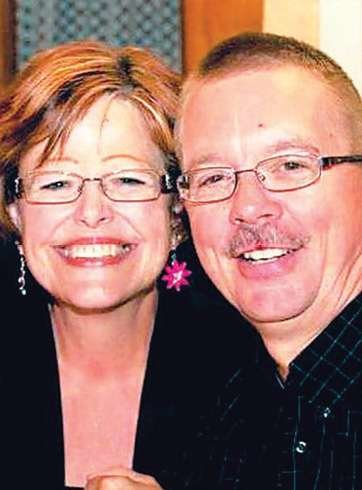 By: Steve Wilmot
By: Steve Wilmot
Edgerton, Ohio
Most people are prideful people. It’s not something you learn; it comes naturally. It’s the prevailing characteristic of babies, children, teens, and adults.
We think we can steer ourselves through the roller coaster events of life. We can handle it. We don’t need God or anyone else. Pride is what that’s called.
Humility, on the other hand, is realizing we need God’s help. That his ways are better than our own even when it’s not the way we’d do it. Even when it doesn’t make sense to us, and it appears counter productive.
Killing pride and gaining humility isn’t easy-peasy. Sometimes it takes the storms of life to humble us so we can learn important life lessons. To help us clarify our priorities.
To awaken us to the fact that there are things we highly value that need thrown overboard. Things that blind us to what matters most.
Suppose your doctor told you tomorrow you have less than three months to live. You wouldn’t need anyone to tell you what matters. What is important. What to move up your priority list. Everything would become crystal clear.
You’d learn there is “stuff” that complicates your life. People who suck the life out of you and take valuable time away from healthy relationships. Things on your to-do list that looked important before you got the news but don’t now.
You’d put relationships first — like you always intended to… someday. In Acts 27, we read about a time Paul sailed to Rome to stand trial before Caesar because of his faith in Jesus Christ.
En route, a terrible storm with hurricane force winds swept down upon the ship. Things got so bad even though the seasoned sailors gave up all hope of survival.
Even so, their pride wouldn’t let them give up. “We’ll figure this out,” they said.
Isn’t that just like us? We see our lives falling apart and know there is nothing we can do to put things back together. But instead of humbly crying out to God for help, we keep on trying to fix it ourselves.
Both Peter (1 Peter 5.5) and James (James 4.6) declare unequivocally “God opposes the proud but gives grace to the humble.” No wonder our problems tend to get worse rather than better.
When we think we can make it without God, he stands back and doesn’t lift a finger to help us… until we humble ourselves and ask him for help.
Back to Paul and the storm. To try to survive the storm, the crew began to throw cargo overboard. Things they once considered valuable suddenly lost importance.
On April 14, 1912, at 10 o’clock at night, the Titanic crashed into an iceberg in the mid-Atlantic Ocean. Four hours later, it sank.
One woman sprinted down the corridors, already tilting dangerously, through the gambling room piled ankle-deep in money to her room. Filled with her treasures waiting to be taken, she snatched three oranges and hurried to a lifeboat.
One hour earlier she would have unquestionably chosen diamonds over oranges. But in the face of death, the things that matter are seen more clearly.
If your doctor said you had less than three months to live, what “cargo” would you throw overboard?
How would you simplify your life? What “stuff” would you give away, sell, or throw in the trash? What items on your schedule would you scratch? Who would you spend more time with? Less time with?
We all have “cargo” that complicates our lives and distracts us from the people and things that matter. If you knew you only had a short time left to live, you’d get rid of all the things cluttering up your life and robbing you of precious time with the most important people in your life, wouldn’t you?
Not only that, but you’d also decide to do things God’s way for the rest of your life. You’d respond to him the same way Jesus did in the Garden of Gethsemane when he knew his impending death was only hours away. “Not my will, but your will be done.”
That’s the essence of humility. Realizing you don’t have all the answers. There are things you can’t fix no matter how smart and capable you think you are.
You need God’s help. Things you thought mattered don’t now, and things you thought weren’t that important really are.
Humble yourself before God. Ask for his help. “Trust God from the bottom of your heart; don’t try to figure out everything on your own.
Listen for God’s voice in everything you do, everywhere you go; he’s the one who will keep you on track. Don’t assume that you know it all. Run to God!” (Proverbs 3.5-7, MSG).
———————–
Steve Wilmot is a former Edgerton, Ohio area pastor who now seeks “to still bear fruit in old age” through writing. He is the author of seven books designed to assist believers to make steady progress on their spiritual journey.
